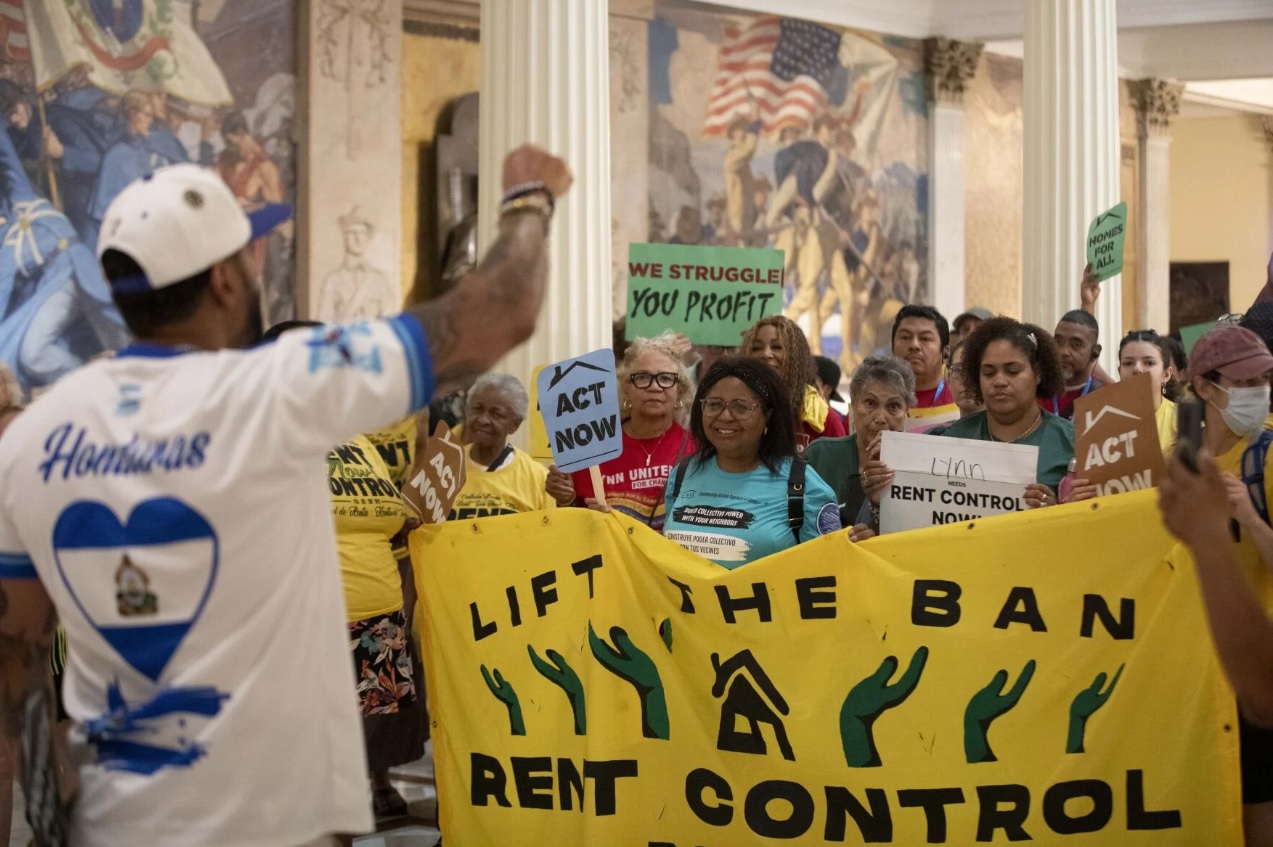Hundreds of tenants and housing advocates recently descended upon Beacon Hill, igniting a fervent debate over rent stabilization legislation in Massachusetts. This pivotal demonstration and subsequent legislative hearing underscored the pressing housing affordability crisis, with proponents viewing rent limits as an immediate and crucial solution, even as the Healey administration champions broader housing production efforts.
At the heart of the discussion is a bill championed by Sen. Pat Jehlen (S 1447), which seeks to empower cities and towns across the Commonwealth to cap rent increases at the rate of inflation, with an additional limit of 5%. Crucially, this proposed legislation also includes a ban on no-fault evictions, aiming to provide greater stability and protection for renters facing an increasingly challenging market.
Organizations like Homes for All Massachusetts, representing a coalition of housing justice groups, brought tenants from numerous Gateway Cities, including Springfield, Worcester, and Somerville, to the State House. Advocates, including Somerville Mayor Katjana Ballantyne and Sen. Jehlen, emphasized the urgent need for immediate solutions, arguing that increased housing production alone is insufficient and too slow to address the current emergency.
Conversely, the Healey administration has outlined a significant capital investment plan for fiscal years 2026-2030, committing $2.34 billion towards housing initiatives. Their strategy focuses on boosting housing supply, with projections indicating that fiscal 2026 funding could facilitate the creation of over 6,000 new units, thereby aiming to alleviate housing costs through increased availability.
However, this perspective faced strong opposition during the hearing. Mindy Perry, a small landlord and representative of the Small Property Owners Association, contended that rent control would not solve the affordability issue but rather exacerbate it by devastating housing supply and driving rents even higher. Tony Lopes echoed this sentiment, referencing negative outcomes in San Francisco and New York City, where he claimed rent control led to a loss of rental units and discouraged investment.
Despite these criticisms, committee member Rep. Mike Connolly robustly defended rent stabilization as a “moderate policy.” He highlighted Massachusetts’ historical precedents for rent control, noting its implementation in various periods, including from 1970 to 1994. Connolly pointed to New York City’s growth of over a million housing units since adopting partial rent control as evidence that tenant protection and housing growth can coexist.
Beyond Jehlen’s bill, the broader legislative landscape includes a House companion rent stabilization bill (H 2328) from Reps. Dave Rogers and Samantha Montaño, which has been redirected to the Housing Committee for further consideration. Additionally, renters recently gained some relief through the fiscal 2026 budget, which banned burdensome renter-paid broker’s fees, a move seen as a significant step in reducing moving costs for many tenants.
The human impact of the housing crisis was a central theme for advocates. Carolyn Chou of Homes for All Massachusetts framed rent stabilization as a “no-cost solution” vital for residents facing impending federal funding cuts, emphasizing that stable housing is fundamental for survival and thriving. Boston City Councilor Ben Weber further highlighted the dire situation of homelessness among public school students, reinforcing the urgent need for policies to reduce evictions.
As the debate continues, the sentiment among many advocates and some lawmakers is clear: cities and towns require the legal power to implement policies like rent stabilization to protect their residents. With a staggering 441,000 low-income households in the state lacking access to affordable rental homes, the call to action for immediate, localized solutions to the housing emergency resonates strongly across Massachusetts.






Leave a Reply